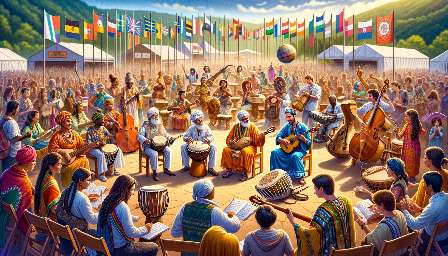Persian music, with its rich and diverse traditions, has a unique place in the global music scene. The impact of globalization on Persian music has been significant, shaping the way traditional Persian tunes are perceived and experienced around the world. This article will explore how globalization has influenced Persian music and its position within the broader context of world music, including the fusion of traditional Persian music with global influences and the role of technology and cultural exchange in the evolution of Persian music.
History of Persian Music
Persian music has a long and storied history, dating back over two millennia. Its roots can be traced to ancient Persia (modern-day Iran), where it was deeply intertwined with the culture, spirituality, and lifestyle of the people. Traditional Persian music is characterized by its intricate melodies, complex rhythms, and poetic lyrics that reflect themes of love, nature, and spirituality.
Over the centuries, Persian music has evolved through various dynasties, invasions, and influences from neighboring regions, resulting in a diverse tapestry of musical styles and genres.
Globalization and Persian Music
Globalization has had a profound impact on Persian music, bringing both opportunities and challenges. One of the most notable effects of globalization on Persian music has been the fusion of traditional Persian tunes with global influences. This fusion has led to the emergence of a new genre known as 'Persian fusion music,' which combines elements of traditional Persian music with Western harmonies, rhythms, and instruments. This blending of musical traditions has created a unique and dynamic sound that resonates with audiences across the globe.
Furthermore, the digital age and advancements in technology have facilitated the global dissemination of Persian music. Through online platforms and social media, Persian musicians are able to share their music with international audiences, transcending geographical boundaries and reaching listeners who may have never been exposed to Persian music before.
Role of Cultural Exchange
Cultural exchange has played a pivotal role in the globalization of Persian music. As artists from different parts of the world collaborate and interact, they bring their unique musical sensibilities and traditions to the table, leading to cross-cultural pollination and the creation of hybrid musical expressions. This exchange has not only broadened the horizons of Persian music but has also enriched the global music landscape by fostering a deeper appreciation for cultural diversity and artistic innovation.
Challenges and Opportunities
While globalization has opened doors for Persian music to reach a wider audience, it has also posed challenges, particularly in preserving the authenticity and integrity of traditional Persian music. As the boundaries between cultures blur, there is a risk of diluting the distinct characteristics of Persian music in an attempt to cater to a more mainstream, global audience.
Nevertheless, globalization has provided opportunities for Persian musicians to collaborate with artists from diverse backgrounds, participate in international music festivals, and engage in cross-cultural dialogues. This exposure has not only elevated the profile of Persian music on the world stage but has also fostered a spirit of artistic innovation and experimentation.
Conclusion
In conclusion, the impact of globalization on Persian music has been multi-faceted, influencing the way Persian music is created, distributed, and experienced on a global scale. The fusion of traditional Persian music with global influences, facilitated by cultural exchange and technological advancements, has reshaped the landscape of Persian music, positioning it as a vibrant and evolving component of world music.
While globalization has presented challenges, it has also brought forth opportunities for Persian musicians to share their artistry with a diverse and interconnected world, enriching the global music tapestry and fostering cross-cultural understanding and appreciation.










































